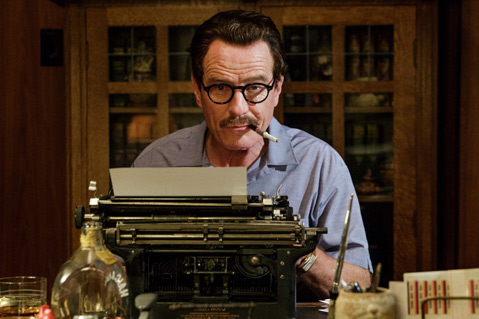‘Trumbo’ Falls Short
Better than Schoolhouse Rock History

For the first half of this film, you will wish that Dalton Trumbo had written Trumbo. The set up is the worst kind of history-on-parade filmmaking — every scene introduces a new celebrity who is either a Communist or hates them. The film concerns Trumbo, one Hollywood’s greatest screenwriters who was a Communist Party member but refused to admit it to the 1947 House Un-American Activities Committee and ended up serving prison time for contempt of Congress. The film also chronicles his efforts to secure work under the Hollywood blacklist’s radar. The film improves vastly after Trumbo’s imprisonment.
Great performances abound, mainly by Bryan Cranston as Trumbo and Michael Stuhlbarg as Edward G. Robinson, an actor who first gave resistance to the Committee then found it harder to embrace idealism when he couldn’t find work. The most vibrant screen presence, however, is Elle Fanning as Dalton’s daughter. She wants to respect her father, but can’t in the end abide his domestic tyrannies while actively standing up against segregation.
Little touches of self-criticism save this often stagey film from hagiography. The film’s most controversial scenes refute the standard story of how Trumbo helped break the blacklist, a credit Kirk Douglas has claimed by giving Trumbo a screenwriting credit for Spartacus. This movie makes it look like Trumbo tricked him into the brave act, a fact that film historians will no doubt get to argue for years. Meanwhile there is this film, better than Schoolhouse Rock history but clearly in need of a more artful screenwriter.



